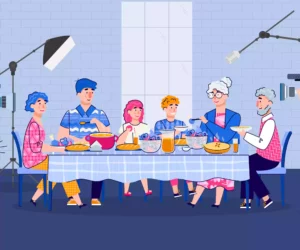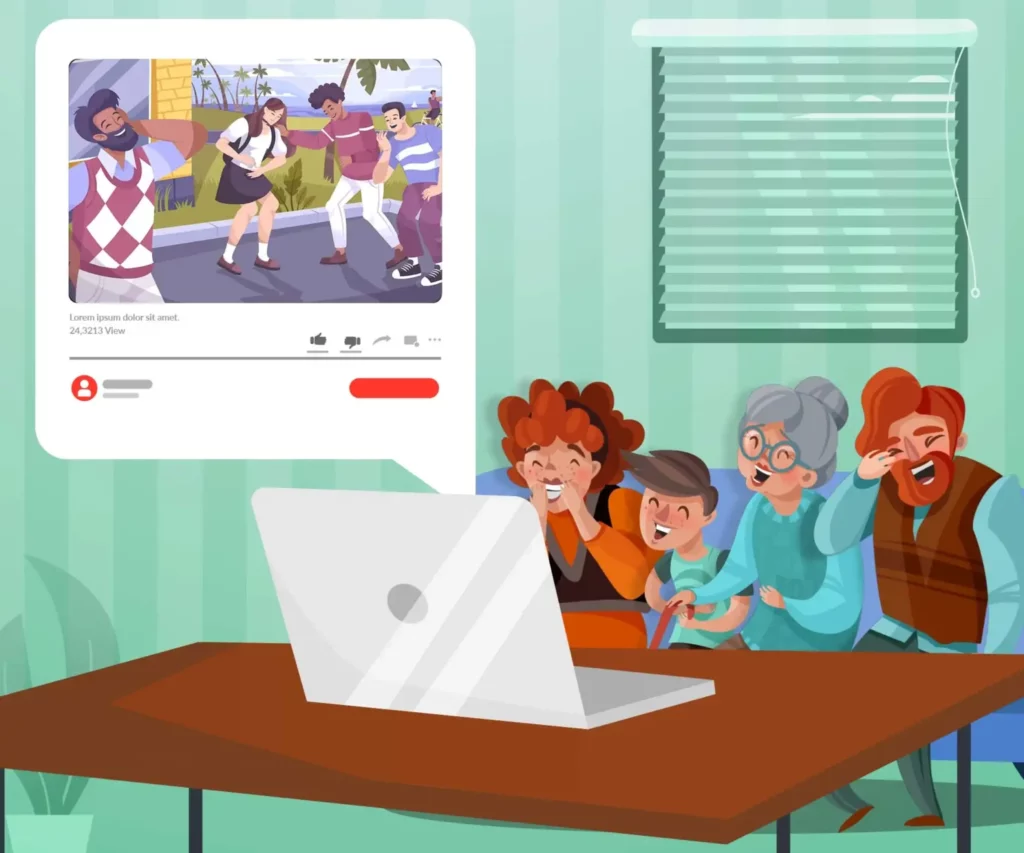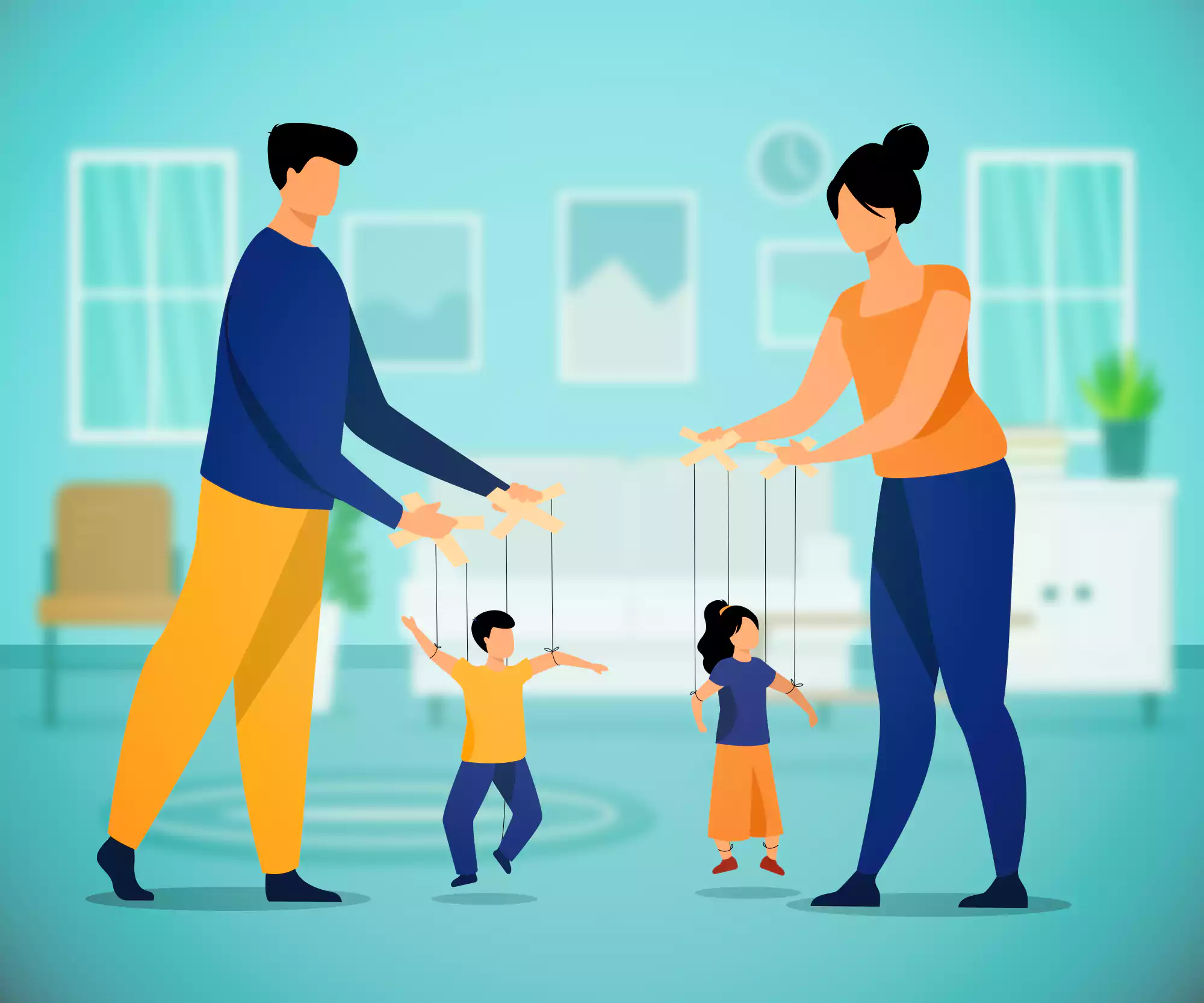
The parental guilt trip. If you’re Asian, you can relate. Filial loyalty is an essential concept in Asian cultures—parents are divinity itself, or at least the closest thing to it. As representation rises and more Asian movies gain international audiences, portrayals of Asian parents provide a peek into our culture and individual development.
Diaries of an Asian kid
If you’re Asian, here are a few phrases you’ve heard at some point:
- It’s for your own good.
- This is how it’s always been in our family.
- We didn’t have any of this. You have so much. You should be grateful.
- Stop complaining.
The basic idea is your parents know what’s best for you—all you need to do is be a ‘dutiful’ child. The only problem is what constitutes dutifulness is ever-changing. If you, at some point, go against this, you are a terrible child. Moreover, transitioning from being a dutiful child to being a bad son or daughter as an adult is easier than one might think. A ‘dutiful’ child grows up taking no independent decisions. However, as an adult, you confront numerous scenarios where decision-making skills are crucial. Failure to take the right decisions could result in lost job opportunities, relationship struggles, or financial problems.
Representing Asian parents
Movies and shows featuring Asian households tend to highlight the problematic aspects of Asian parenting, whether that’s from a Western perspective or an introspective one. Here are a few movies and TV shows that highlight the Asian parent-child dynamic in different ways:
1. Mother knows best
In Crazy Rich Asians, Michelle Yeoh plays a mother who disapproves of her son’s lower-class girlfriend. The Asian American girl (Constance Wu) gets a rude wake-up call when she realises that the standards of the Singaporean elite are different from what she’s experienced in the West. She also realises that what may be considered helicopter parenting elsewhere is the norm here. It is a sign of love—parents are SUPPOSED to meddle in their children’s affairs. This delusion takes over the mother in particular—her perfect son, the paradigm of virtue and respectability, has been ensnared by this woman’s charms. But she will never be good enough for her son. Sure, he can have his affairs, but he must eventually marry a woman of his mother’s choosing.
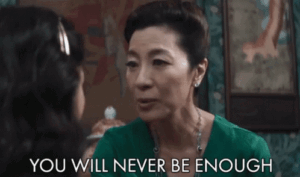
2. The guilt trip
A movie that deals with the various pressures of student life in India, 3 Idiots features how families across economic strata guilt their children into life decisions. For example, Farhan’s father gives his son every amenity so that he can become an engineer. So it feels like a betrayal to him when his son reveals his passion is photography. Another character, Raju, is so overwhelmed by his impoverished family circumstances and the aspirations his mother has pinned on him that he attempts suicide. The movie also grapples with predestined career paths into which Asian children are born. In most Asian families, the child’s profession is the result and reward of the parents’ efforts. The greater the sacrifice the parents make, the greater the hold they maintain on the child and the higher-paying profession to which the child must aspire.
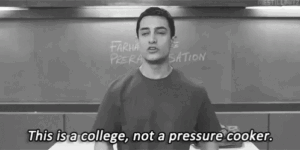
3. The maternal continuum
Mindy Kaling’s series, Never Have I Ever, looks at the hurdles a daughter and her mother must overcome as they navigate their grief of her father’s death. Very often, across cultures, daughters seem more attached to their fathers and vice versa. In contrast, the mother-daughter dynamic gets more confrontational as the girl goes through adolescence. Unlike Bollywood’s cult classic Dilwale Dulhania Le Jayenge, where the mother becomes the daughter’s best friend, this series presents a more realistic picture. It is that of a woman struggling to impart her values to her child without ignoring her needs.
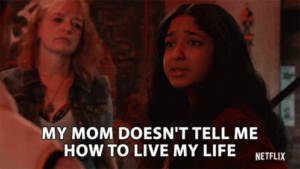
4. Asian parents and generational trauma
The Namesake follows a first-generation American son who struggles with his identity as his parents try to understand him and his life choices. When the parents meet Nikhil’s white girlfriend, they are thoroughly overwhelmed. However, when Nikhil marries an Indian family friend (an approvable match), the marriage ends in divorce. The movie metaphorically states that a parent’s trauma is also a part of the child’s life and the family’s collective memory.
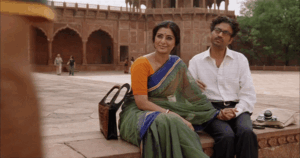
5. The perfect immigrant child
In Turning Red, the perfect immigrant child must suppress the instincts that arise from her exposure to Western culture and also the more noticeable parts of her own culture and heritage. Just like all the women in her family suppressed their red pandas, so must Mei Lee hide away her true self so she can fit into her environment. The suppression of the red pandas symbolises the Asian parents’ attempt to give their children a better life by turning them away from what they consider embarrassing parts of themselves. The message is to contain your spirit to achieve set goals. Creativity is only encouraged so long as it looks good on a college application. So Mei Lee should play the flute in the school band but shouldn’t be making adolescent sketches about boys.
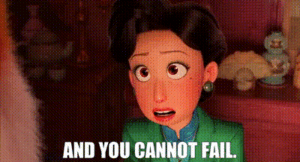
6. Preaching vs practising (Asian parents edition)
Lane’s mom from Gilmore Girls was a white interpretation of a stereotypical, devout, Christian tiger mom. The juxtaposition of Mrs Kim with Lorelai’s easygoing parenting leaves Lane and the audience feeling sorry for the restricted Asian girl and empathising with her rebellion. However, the show later reveals that Mrs Kim’s mother is Buddhist, and Christianity is her kind of rebellion.
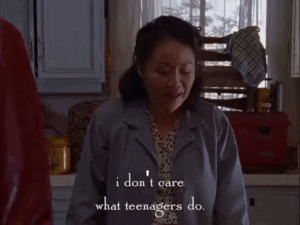
7. Toe the line
In Dil Dhadakne Do, the Mehras are more concerned with their children maintaining the status quo rather than living their dream or fulfilling their potential. In true enmeshed-family fashion, one must sacrifice individual identity for the family’s good. This film showcases parents who decide everything, from where the kids should study to whom they should marry. They believe they are keeping their marriage together for the family’s sake and that anyone who does any less is a coward. ‘Divorce is not an option’ is so deeply ingrained in many Asian households that they stick with toxic, abusive relationships.
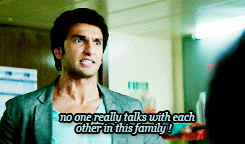
8. A dispute for generations
The father, who views his son as the only child worth his time (the rest being girls who are summarily married off), sends Faisi abroad to get an MBA, i.e., groom him to be his heir. However, when the son decides to become a chef (like his grandfather), the father confiscates his passport. Soon the father even threatens to disown Faisi if he follows in his grandfather’s footsteps, a man he despises. The film slowly reveals that the underlying cause of the father’s controlling and deeply flawed nature is his own father’s neglect.
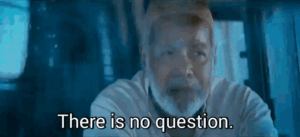
Many of these works contain classic examples of gaslighting, where the parent doesn’t listen or want to communicate with their child. Often shown is the belittling of their decisions and the invalidation of their feelings, calling them ‘too sensitive’ or ‘dramatic’ (as opposed to ‘realistic’). These parents view themselves as victims, denying their shortcomings and believing that you only need them as you go forth in your life. This complete dependence on one’s parents naturally nudges out other systems and sources of love and support. But, we later understand that they are merely parenting as their parents parented them. Nonetheless, as we see in Never Have I Ever and Turning Red, communicating and finding common ground can effectively bond parents and children, ending the vicious cycle.
We cannot condemn Asian parenting as a whole; most young parents are moving away from old toxic patterns. However, representation isn’t always going to show just the rosy side of a culture but also its problematic aspects. And I think that’s important too—a little introspection never hurt anyone.


